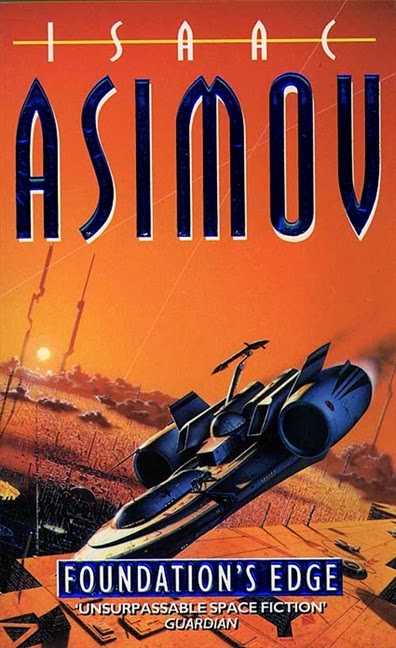 |
| Image courtesy of harpercollins.com |
The opening chapter of Asimov’s classic, Foundation, is one of my favourite moments
in sci fi: Gaal Dornick, an aspiring psychohistorian, steps out of a spaceship
capable of flight between the stars. He reflects upon the unimaginable distance
he has travelled to reach Trantor, the seat of a galaxy-spanning empire. Its
inhabitants number in the billions and live within a city sprawl so large that
many haven’t seen the sky.
As he reflects, his luggage is lifted down by a crane.
A crane.
Asimov himself is pure Second Foundation. I love that he can create a universe
from scratch while simultaneously making the most fantastical speculative
leaps, exploring human psychology, yet the crane remains somehow outside of
time and immune to innovation.
Foundation’s Edge, the fourth in Asimov’s Foundation series, ramps
up that disconnect.
The term 'space opera' has rarely been more appropriate. Technology,
emotions, relationships and the stakes are all dialled up to 11. But, sadly, plot points need
to be laboriously explained (thankfully, there's always a sidekick nearby and as bewildered as the reader), emotions are high but
simplistic and the fate of the universe rests on his characters’ every
unintuitive leap of logic.
I love the universe Asimov created in The Foundation Series, but I can
see all too clearly why many warn against straying from the original trilogy.

No comments:
Post a Comment